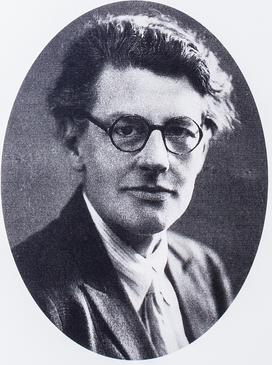George Stewart | |
|---|---|
| Born | 1752 |
| Died | 8 June 1813 |

George Stewart (1752 - 8 June 1813) [2] was the president of the Royal College of Surgeons in Ireland (RCSI) in 1792 and in 1799. [3]
George Stewart | |
|---|---|
| Born | 1752 |
| Died | 8 June 1813 |

George Stewart (1752 - 8 June 1813) [2] was the president of the Royal College of Surgeons in Ireland (RCSI) in 1792 and in 1799. [3]
George Stewart was sixth in descent from the second Lord Ochiltree, who belonged to one of the many branches of the royal family of Stewart, or Stuart. His father, Alexander, resided at Drumasple, in the County of Tyrone, of which county he was high sheriff in 1752. His mother was Jane, daughter of Benjamin Wallace, of Ramelton, County of Donegal; she was Alexander Stewart's second wife. G. Stewart was born in his father's house in 1752. [2]
Stewart was twice married; firstly to Frances Anne, daughter of William Stewart, of Killymoon, County of Tyrone, who for some time represented that county in the Irish Parliament; secondly to Elizabeth Mitchell, a Dublin lady. [2]
Stewart began to practise at 11 Fownes Street, Dublin, in 1773, and in the same year he was elected a surgeon to the Charitable Infirmary, Inns Quay, which subsequently was removed to Jervis Street. Soon after Stewart moved to South George's Street, and at the date of the foundation of the college he resided at 32 Mary Street. He again changed his residence to 74 Stephen Street, and the latter portion of his life was spent in a fine mansion in Upper Merrion Street. [2]
Stewart being well connected, having agreeable manners and much surgical skill, soon acquired an extensive practice amongst the upper classes. In 1785 he was appointed state surgeon, and on Richardson's death, in 1787, he succeeded that surgeon in the position of surgeon-general to the forces. [2]
He died at his house, 19 Upper Merrion Street, on 8 June 1813. On 21 June 1813, the Royal College of Surgeons in Ireland, on the motion of Abraham Colles, resolved to help to perpetuate his memory by placing a marble bust of him in their principal hall. [2]

Abraham Colles was Professor of Anatomy, Surgery and Physiology at the Royal College of Surgeons in Ireland (RCSI) and the President of RCSI in 1802 and 1830. A prestigious Colles Medal & Travelling Fellowship in Surgery is awarded competitively annually to an Irish surgical trainee embarking on higher specialist training abroad before returning to establish practice in Ireland.

William Dease (1752?–1798) was an Irish surgeon and anatomist. He was one of the founders of the Royal College of Surgeons in Ireland and its first Professor of Surgery. He studied surgery in Dublin and Paris and was appointed surgeon to the United Hospitals of St Nicholas and St Catherine.

Arthur Jacob (1790–1874) was an Irish ophthalmologist. He is known for founding several hospitals, a medical school, and a medical journal. He contributed to science and academia through his 41-year term as Professor of Anatomy at the Royal College of Surgeons in Ireland (RCSI) and as the first Irish ocular pathologist. He was elected President of RCSI in 1837 and 1864.

Sir Philip Crampton, 1st Baronet, FRS was an eminent Irish surgeon and anatomist. He was President of the Royal College of Surgeons in Ireland (RCSI) in 1811, 1820, 1844 and 1855.
Richard Carmichael MRCSI MRIA was an eminent Irish surgeon, medical writer and philanthropist.

Samuel Croker-King was an Irish surgeon who was associated with Doctor Steeven's Hospital in Dublin for sixty years. He was the first president of the Royal College of Surgeons in Ireland (RCSI), from 1784 to 1785. He is thought to have saved the life of the child who became the Duke of Wellington. He invented his own trepanning device.

Solomon Richards was an Irish surgeon who served four terms as president of the Royal College of Surgeons in Ireland (RCSI) in 1794, 1803, 1808, and 1818. He achieved fame by performing a tracheotomy in public for which act he featured in a satirical poem in The Metropolis. He was praised for his philanthropy and noted for his puns and bon mots. He was said to be the "fattest surgeon in the United Kingdom".

Gustavus Hume was the president of the Royal College of Surgeons in Ireland (RCSI) in the first part of 1795. He specialised in the diseases of children. He was one of the surgeons who examined the body of the journalist William Jackson after he died from poisoning in a Dublin court in 1795 while awaiting sentencing for high treason.

Richard Dease was the president of the Royal College of Surgeons in Ireland (RCSI) in 1809.

John Armstrong Garnett was the president of the Royal College of Surgeons in Ireland (RCSI) in 1810.

John Creighton was the president of the Royal College of Surgeons in Ireland (RCSI) in 1812 and 1824.

Patrick Cusack Roney or Rooney was an Irish physician who was President of the Royal College of Surgeons in Ireland (RCSI) in 1814 and 1828.

Andrew Johnston was the president of the Royal College of Surgeons in Ireland (RCSI) in 1817.

Charles Hawkes Todd was a medical doctor and the president of the Royal College of Surgeons in Ireland (RCSI) in 1821.

John Timothy Kirby was the president of the Royal College of Surgeons in Ireland (RCSI) in 1823 and 1834.

Alexander Read was the president of the Royal College of Surgeons in Ireland (RCSI) in 1825 and 1835.

Maurice Collis was the president of the Royal College of Surgeons in Ireland (RCSI) in 1839.

Andrew Ellis was the president of the Royal College of Surgeons in Ireland (RCSI) in 1849.

Euphan Maxwell (1887–1964) was an Irish ophthalmologist and the first woman ophthalmic surgeon in Ireland at the Royal Victoria Eye and Ear Hospital, Dublin.

William Hartigan, MD, MRCSI (1756–1812), was an Irish surgeon.